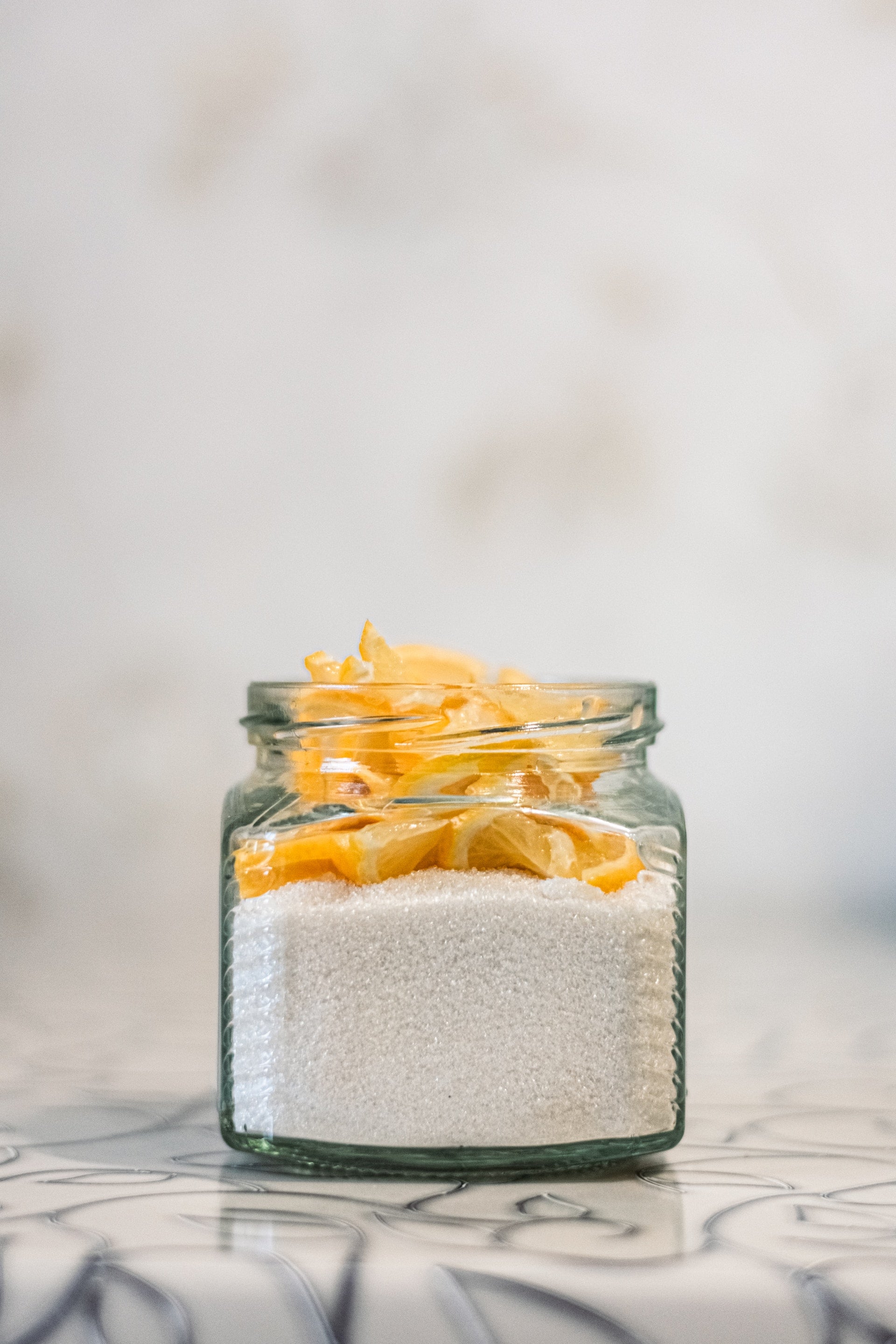
Lemon Pepper: A Versatile Seasoning Blend's Resurgence
Lemon pepper is making acomeback. In the world of seasonings, it's the new talk of the town.
With its zesty tang and peppery punch, lemon pepper is not just your average spice blend anymore. It’s becoming an essential in kitchens around the globe
The resurgence of this versatile seasoning has food enthusiasts experimenting with new recipes that highlight its unique flavor profile. From chicken wings to pasta dishes, lemon pepper brings an exciting twist to traditional favorites. And with experimentation and exploring citrus alternatives, one ingredient that is becoming the new darling of the restaurant scene is Lemon Myrtle, an Australian botanical reknown for its citrus flavour profile and array of health benefits.
Table of Contents:
- The Resurgence of Lemon Pepper
- The Art of Crafting Lemon Pepper
- Embracing Health Benefits Alongside Flavor
- Introducing Lemon Myrtle - A Citrus Alternative
- The Perfect Blend - Combining Lemon Myrtle with Black Pepper
- Embracing Health Benefits Alongside Flavor
- FAQs in Relation to Lemon Pepper
- Conclusion
The Resurgence of Lemon Pepper

There's been a significant resurgence in the popularity of lemon pepper recently. This versatile seasoning blend is now viewed as an essential ingredient across diverse culinary landscapes.
Lemon pepper fans insist that its revival can be traced back to lemon pepper hot wings, which have become somewhat iconic within gastronomic circles. The vibrant mix of citrus and spice coating these succulent wings has sparked interest among both professional chefs and home cooks alike who are eager to explore this often overlooked seasoning blend.
This renewed fondness for loving lemon pepper isn't confined merely to wing joints; it extends far beyond. Its bright flavor profile makes it compatible with a wide range of dishes - from poultry and seafood, there seems no end to how you can put lemon pepper into use. The New York Times offers an enticing recipe, showcasing these flavors through tantalizingly seasoned chicken wings.
Apart from relishing its taste, people also appreciate understanding what goes into their favorite blends. As such, many consumers are opting for homemade versions using fresh ingredients instead of pre-packaged options laden with cheap extracts or excessive sodium content - aspects we'll delve deeper into later sections.
The Art of Crafting Lemon Pepper

Lemon pepper, a beloved seasoning blend that has gained popularity in recent years, is not just about the taste. Making lemon pepper provides the chance to introduce top-notch ingredients into a meal.
Originally lemon pepper has been crafted wth freshly grated lemon zest and cracked black pepper, to create this culinary magic. However, this process allows for personalization according to individual flavor preferences while ensuring no cheap extracts or excessive sodium sneak their way in. Lemon Myrtle is now a popular citrus alternative and one being used to create a twist on traditional lemon pepper.
Choosing Quality Ingredients
To embark on this journey of crafting a blend, start by selecting fresh citrus ingredients such as Lemon Myrtle leaves or powder. This works perfectly when dried and ground finely - forming little greenish yellow granules that are ready for bottling up freshness.
In addition to these primary components, consider incorporating other elements such as sea salt or garlic powder, which can further refine the complexity of your mix without overwhelming its natural flavors.
Just remember: making spice blends isn't simply about combining some citrus flavour with cracked black pepper, it's much more than that. With patience and practice comes mastery over this art format resulting in unique mixes superior both nutritionally and tastewise compared to store-bought versions.
Embracing Health Benefits Alongside Flavor
Lemon myrtle and black pepper, apart from being flavor enhancers in cooking, are powerhouses of health benefits. Incorporating these nutritious ingredients into your everyday meals not only makes them delicious but also contributes positively towards overall well-being.
Here's how you can enjoy the dual advantage of taste and health with lemon myrtle and black pepper:
The Nutritional Profile of Lemon Myrtle
You might be wondering: what sets lemon myrtle apart as a citrus alternative? It's ground super finely to add a unique twist to traditional recipes while enhancing nutritional value. However, there's more to it than meets the eye.
Apart from its vibrant flavor profile, lemon myrtle is known for its array of health benefits. This includes anti-microbial properties which could contribute towards boosting immunity - an important aspect considering today's environment.
Incorporating this ingredient into your dishes will make every bite perfect in terms of both flavor and nutrition.
The Powerhouse Called Black Pepper

We all know about cracked black pepper adding depth to our food preparations. However, it brings more than just heat on the plate; it carries significant potential when it comes to promoting good health too.
- Digestive Aid: Black pepper stimulates digestive juices helping ease the digestion process.
- Nutrient Absorption: Piperine present in black peppers enhances nutrient absorption by stimulating metabolism.
- Potent Antioxidant: The presence of antioxidants helps combat free radicals, reducing oxidative stress within body cells.
This isn't overly complicated - including such potent spices like lemon myrtle even with the addition of freshly dried citrus zest works wonders for both culinary creations as well as personal wellness.
Introducing Lemon Myrtle - A Citrus Alternative
The culinary landscape is a dynamic one, constantly enriched by the discovery and incorporation of new flavors. One such flavor that's been making waves in recent times is lemon myrtle. This botanical gem hailing from Australia offers an intriguing citrusy note which can serve as an innovative alternative to traditional citrus fruits.
Lemon myrtle carries with it a vibrant blend of intense lemon-lime aroma intertwined with subtle eucalyptus notes. It's ground super finely for use in spice blends like our cherished lemon pepper, adding depth and complexity to dishes.
Incorporating Lemon Myrtle into Your Recipes

You might be wondering how this exciting ingredient could fit into your cooking routine? Consider any recipe where you'd typically utilize fresh lemons or limes - the finely ground powder form of lemon myrtle makes a suitable substitute while offering its unique zestiness.
Imagine using it as part of your marinades or dressings; its tangy freshness would not only stand out but also add layers unseen before when paired with conventional citrus fruits. This article published on PubMed Central (PMC) further delves into potential applications and benefits associated with this Australian native plant.
A Healthier Option?
Beyond just tantalizing taste buds, there are other compelling reasons why many people gravitate towards incorporating more natural ingredients like these in their meals: health benefits. With antimicrobial properties alongside being rich sources antioxidants including vitamin C & E - Lemon Myrtles aren't just about flavor enhancement.
It gives us yet another reason why we should consider exploring beyond what we know.
The Perfect Blend - Combining Lemon Myrtle with Black Pepper
A harmonious blend of lemon myrtle and black pepper provides an unmatched taste experience. This dynamic duo not only maintains all the brightness that true lemon pepper fans insist upon but also introduces an extra layer of depth courtesy of the distinctive taste profile offered by myrtle.
Creating the ultimate Lemon Myrtle-Pepper Blend

To embark on your culinary adventure in creating this novel blend, you'll need high-quality ingredients: fresh lemon myrtle for their zest, coupled with whole black peppercorns ready for grinding.
The first step involves finely grinding dried lemon myrtle leaves until they transform into vivid yellow granules bottled up waiting to be used. These granules are then combined with freshly cracked black pepper according to personal preference - some may lean towards more zesty notes while others might prefer stronger hints from peppers' pungency.
You have control over its intensity levels as well as ensuring freshness, something store-bought version often lacks.
Embracing Health Benefits Alongside Flavor
Adding lemon myrtle and black pepper to your cooking can not only add flavor but also bring a wealth of nutritional benefits.
Lemon Myrtle - A Nutrient Powerhouse
The distinctive citrus aroma of lemon myrtle is due in large part to citral, which has been studied for its potential antimicrobial and anti-inflammatory properties. This botanical also contains antioxidants that help combat free radicals in the body - talk about multitasking.
Beyond this, lemon myrtle is rich in calcium and magnesium - essential minerals for bone health. So not only does adding this ingredient make meals taste better, but it also boosts their nutritional value.
Incorporating these nutritious ingredients into daily meal prep offers dual advantages: they boost flavors while promoting wellness at the same time. That's what we call a culinary win-win.
FAQs in Relation to Lemon Pepper
What is lemon pepper good for?
Lemon pepper seasoning adds a zesty, spicy kick to dishes. It's perfect for poultry, seafood, vegetables, and pasta. Plus, it can enhance marinades and dressings.
What is the history of lemon pepper?
The origins of lemon pepper are unclear, but its popularity surged in recent years due to Atlanta's famous hot wings. Now it's a staple in many kitchens worldwide.
Is lemon pepper a healthy spice?
Absolutely. Both Lemon Myrtle and black pepper show antioxidant properties. Store-bought blends may contain high sodium levels, so homemade and gourmet versions are healthier.
Why is lemon pepper seasoning so good?
Lemon Pepper combines citrusy tang with peppery heat, creating an enticing flavor profile that enhances any dish it’s added to - from meats to veggies and beyond.
Conclusion
Lemon pepper has certainly made a splash in the culinary world. Its resurgence is nothing short of impressive, finding its way into various dishes from Atlanta's famous hot wings to seafood and pasta recipes.
Making lemon pepper at home can bring out a more natural flavor compared to store-bought versions. It all starts with choosing quality ingredients like fresh citrus and freshly dried zest. This seasoning blend is not limited to rubs or marinades, but can also be used as a topping or in sauces and dressings for exciting culinary exploration. The possibilities are endless!
If you're feeling adventurous, why not try substituting traditional citrus with Lemon Myrtle? This Australian botanical adds a unique twist while boosting nutritional value.
Combining finely ground Lemon Myrtle with cracked black pepper creates an exciting version of this classic seasoning blend that's worth trying out at home.
Beyond enhancing flavors, incorporating such nutritious ingredients into your cooking contributes positively towards overall health. So go ahead, experiment away!


